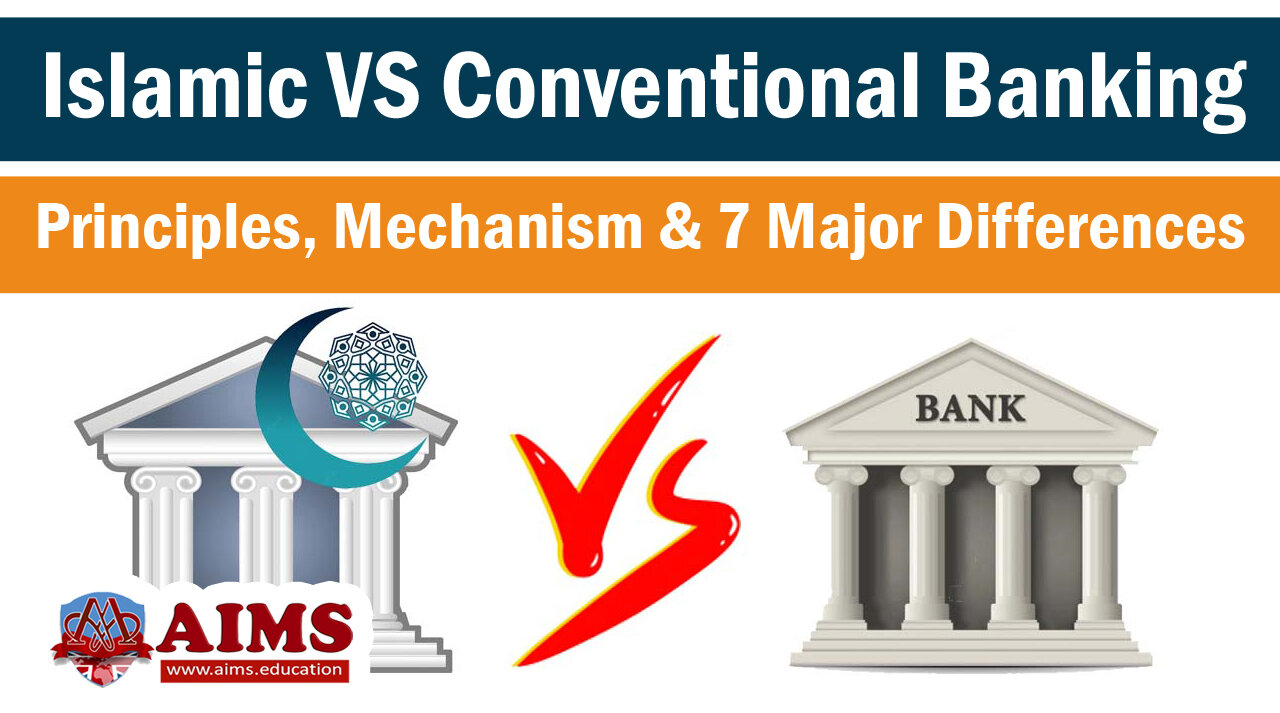Premium Only Content

Islamic Banking VS Conventional Banking ? Meaning, Definition, and Example
Islamic banking and conventional banking differ fundamentally in their principles and practices. The key difference between Islamic banking and conventional banking lies in the prohibition of interest (Riba) in Islamic finance,
For complete lecture on Islamic Banking VS Conventional Banking , and for more lectures on Islamic Banking and Finance visit: https://aims.education/study-online/difference-between-islamic-banking-and-conventional-banking-system/
while conventional banking allows interest-based transactions. In conventional banking, a conventional account refers to a traditional deposit account where the bank pays interest to the account holder, based on the amount and duration of the deposit. On the other hand, Islamic banking operates on profit-sharing principles, with products like Mudarabah and Musharakah,
where returns are based on actual business outcomes and risk-sharing, avoiding fixed interest payments. This distinction highlights the ethical and religious considerations that guide Islamic banking.
#IslamicBankingVSConventionalBanking #IslamicVSConventionalBanking #ConventionalBanking #AIMS #AIMSEducation #Education #elearning #Training #OnlineCourses #WhatIs #OnlineCourses #IslamicBanking #IslamicFinance #ShariahCompliant #IslamicFinancing #IslamicBankingandFinance #Banking #Finance #IslamicStudies #IslamicEducation
Institute of Islamic Banking and Finance
https://aims.education/islamic-banking-and-finance-institute/
Certified Islamic Banker (CIB)
https://aims.education/islamic-banking-certification-courses/
Certified Islamic Finance Expert (CIFE)
https://aims.education/islamic-finance-certification-courses/
Master Diploma in Islamic Finance (MDIF)
https://aims.education/diploma-in-islamic-banking-and-finance/
MBA in Islamic Banking and Finance
https://aims.education/islamic-banking-and-finance-mba-masters-degree/
PhD Islamic Finance
https://aims.education/phd-islamic-finance-and-banking/
-
 LIVE
LIVE
Mally_Mouse
2 hours agoSaturday Shenanigans!! - Crowd Control - Content Warning
204 watching -
 17:24
17:24
Exploring With Nug
8 hours ago $1.60 earnedScuba Diving on Underwater Cars Searching For Missing Man!
23K1 -
 3:06:12
3:06:12
Jewels Jones Live ®
1 day agoWASTE, FRAUD & ABUSE | A Political Rendezvous - Ep. 110
65.4K13 -
 25:11
25:11
BlackDiamondGunsandGear
4 hours agoAnderson AR-15 / Is Budget Building Trash?
13.9K8 -
 1:21:05
1:21:05
Michael Franzese
8 hours agoDemocrats MELTDOWN Over DOGE—Plus More on JFK’s Assassination | LIVE
90.1K100 -
 10:02
10:02
RTT: Guns & Gear
17 hours ago $1.59 earnedEAA Girsan Influencer X 1911 - The Cheat Code For Accuracy
25.8K -
 11:03
11:03
Degenerate Jay
3 days ago $1.33 earnedHenry Cavill James Bond Was Almost A Reality
26.5K8 -
 31:58
31:58
CarlCrusher
1 day agoDiscovering the Secret Ultra Low Spectrum for UFO Contact and Skinwalker Ranch
21.8K -
 3:44
3:44
Rethinking the Dollar
1 day agoMichigan’s Big Bitcoin Move—What It Means!
39.9K1 -
 16:56
16:56
Chris From The 740
17 hours ago $0.75 earnedIs The Ruger RXM A Viable Carry Option? Let's Find Out!
25.9K4